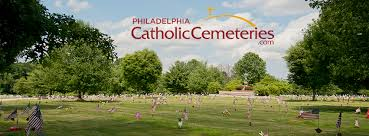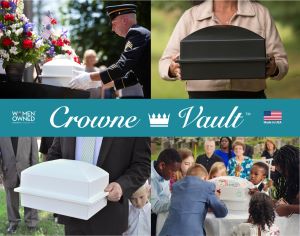Cemeteries — To Tax or Not to Tax
 It’s no secret that taxing authorities are looking for all of the ways that they can raise taxes to put to government work. I read an interesting article just yesterday in the Delaware County Daily Times of Pennsylvania whereby the local Marple Newtown School District had claimed that the value of an Archdiocese of Philadelphia cemetery, now run by StoneMor Partners LP, has a higher value than it had been assessed.
It’s no secret that taxing authorities are looking for all of the ways that they can raise taxes to put to government work. I read an interesting article just yesterday in the Delaware County Daily Times of Pennsylvania whereby the local Marple Newtown School District had claimed that the value of an Archdiocese of Philadelphia cemetery, now run by StoneMor Partners LP, has a higher value than it had been assessed.
As you may recall, in May 2014 StoneMor LP entered into an agreement with the Archdiocese whereby StoneMor would operate the cemeteries owned by the Archdiocese for the next 60 years via a payment of $53 million to the Archdiocese. The article does not lay claim to the Marple Newtown School District using this transaction as part of their argument that the cemetery should have a higher valuation.
At the end of the day, however, the article states the the parties have reached an agreement which would require the cemetery to pay higher property taxes than it had previously. Going back to 2014 and through 2018 the cemetery will pay an aggregate amount of $253,694. Newton School District Board President Kathy Chandless said, “Our board is very pleased with this settlement, which yields more than a quarter of a million dollars for the years at issue and over $50,000 in increased annual revenue to support public education in Marple Newtown.”
It is unknown how a jury would have ruled since an agreement was made. The Archdiocese and StoneMor maintained that the property is tax exempt because it is an actual burial ground that is owned by a non-profit entity. The Marple Newtown School Board disagreed and says the law applies only to “churches, meetinghouses or other actual places of regularly stated religious worship.”
Funeral Director Daily take: This was an interesting article to me. I served on a non-profit cemetery association board in Minnesota, and to my knowledge, we never were required to pay property taxes. I wonder if StoneMor took these amounts into consideration when they signed the lease agreements in 2014. Or, is it the operation of a non-profit cemetery by a for-profit company that led to the tax assessments? There is no doubt that having to pay higher property taxes will result in higher fixed costs and an eventual increase in prices.
[wpforms id=”436″ title=”true” description=”true”]




















